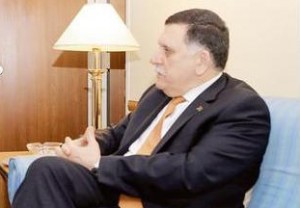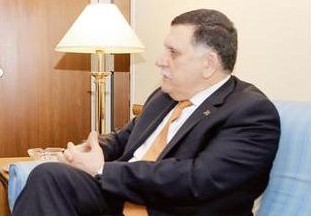By Libya Herald reporter.

Tunis, 3 June 2016:
The Libyan army is now pulling itself into an effective fighting force that can defeat the . . .[restrict]so-called Islamic State, Presidency Council head Faiez Serraj has said. Misratan-led units were cooperating with members of the Petroleum Facilities Guard from Ajdabiya, he has pointed out, and are moving towards Sirte from either side.
“We are sure that the battle and the eradication of Islamic State will be carried out by Libyans,” he told Reuters in his second major interview in less than a week. “I think that what was achieved from Ajdabiya to Sirte and from Misrata to Sirte was a good achievement, given the capabilities that the fighters have.”
Furthermore, he added, no one would be excluded from being part of the Libyan army, so long as they accepted the authority of the central government – meaning his government of National Accord.
Serraj also divulged that, so far, his administration had taken no decisions about who would head the Central Bank of Libya, the National Oil Corporation or the Libyan Investment Authority. Instead the aim at present was, as with the army, to unite the rival parallel institutions in Tripoli and Beida in order to restart oil production and rebuild the economy.
It was up to the Libyans, too, to deal with the migrant crisis, he said, but the problem also needed to be addressed in the migrants’ home countries.
The emphasis on security, national reconciliation and the economy was much the same as in a far longer interview with the Saudi daily Okaz published on Monday, although in it he added another top priority: getting displaced Libyans home.
In the interview, Serraj also rejected suggestions that the Presidency Council was a tool of the Americans, disclosed that he did not fear being assassinated, and that despite the problems that he was optimistic about the future of Libya.
In relations to those problems, he said that he had tried to reach out to House of Representatives’ president Ageela Saleh but that although the two had spoken on the phone when both were in Cairo, Saleh had refused to meet him. As to their relationship, he had no personal issues with Saleh, he said, but he had to hold a session of the HoR to approve the GNA.
There were problems with Khalifa Hafter as well, he admitted. He had made it clear in his talks with the general in January that the military leadership had to be under the Presidency Council. Subsequent attempts at direct communication with Hafter and his advisers had not worked, he intimated. [/restrict]







